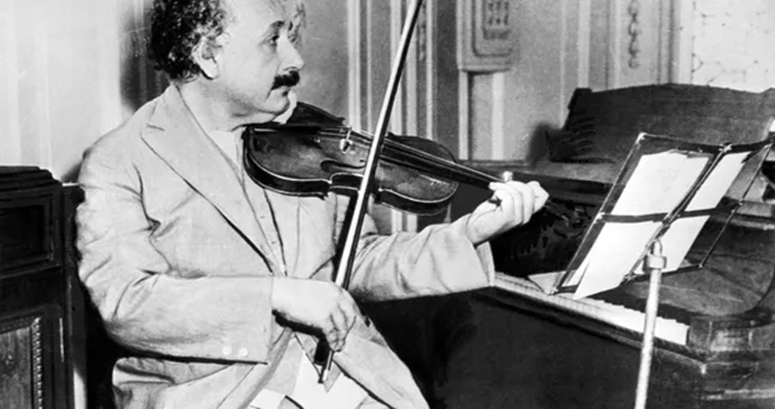?How did Little Albert become the great Einstein

1905. A certain Albert Einstein, aged twenty-six, publishes in the space of a few months five articles which call into question the foundations of physics. A look back at this "miraculous" year with science historian Christian Bracco.
With
Christian Bracco science historian
The year 1905 was a rich year. It hosted the mutiny of the battleship Potemkin, the creations of Schönberg's Pelléas et Mélisande , Debussy's La Mer , Claudel's Partage de midi , Picasso's Boy with a Pipe , and Freud's publication of _Three essays on sexual theory. , which is already a lot for a single year.
Find out more: Great Einstein crossing (archives)
But in science, 1905 was downright the annus mirabilisphysics! Because it was then that a radically new universe was built in Bern, in peace, between patents, daydreams, friendly evenings, nappies and chatter, which its author was not long in presenting to the face of the world. At the end of a journey whose inspiration and precise unfolding remain partly mysterious, Albert Einstein, this outsider who belonged neither to the university seraglio nor to any official academy, wrote five extraordinary articles. Four of them deploy literally revolutionary ideas or contain the seeds of new theories, “like marker rockets which, in the darkness of the night, suddenly threw a brief but powerful flash over an immense unknown zone”, as French physicist Louis de Broglie would later say so.
If specialized historians are able to reconstitute with great precision the sheets of space-time that surrounded these jets of singularity, none ever manages to grasp them in themselves, neither the law of continuity which secretly connects them, nor by what exact series of obscure events the production of this work was brought about.
However, is it legitimate to speak of a miracle when it comes to describing the genesis of scientific ideas? Isn't there a way, by delving into the details, to somewhat understand the framework in which they appeared, to grasp the context that gave rise to them and the click that finally made them emerge? True genius is undoubtedly a matter of flashes as much as of patience: the final clarity awakens only after long wanderings, essential detours, seemingly fruitless monomanias, at the end of which, finally, from a single Suddenly or almost, everything changes.
?In the case of young Einstein, how did it all happen
Our guest, Christian Bracco , is a historian of science, lecturer at the University of Nice Sophia-Antipolis and researcher in the “History of astronomy” team of the Syrte department of the Paris Observatory. He is the author of When Albert becomes Einstein (CNRS editions, 2017)
Musical programming
Ludwig Van Beethoven, Kreutzer Sonata op 47, 1st movement, version Jacques Thibaud, Pablo Casals, Alfred Cortot
Johannes Brahms, Sonata in G major, 2nd movement (adagio), contemporary version Isabelle Faust - Alexander Melnikov
Source : websites

